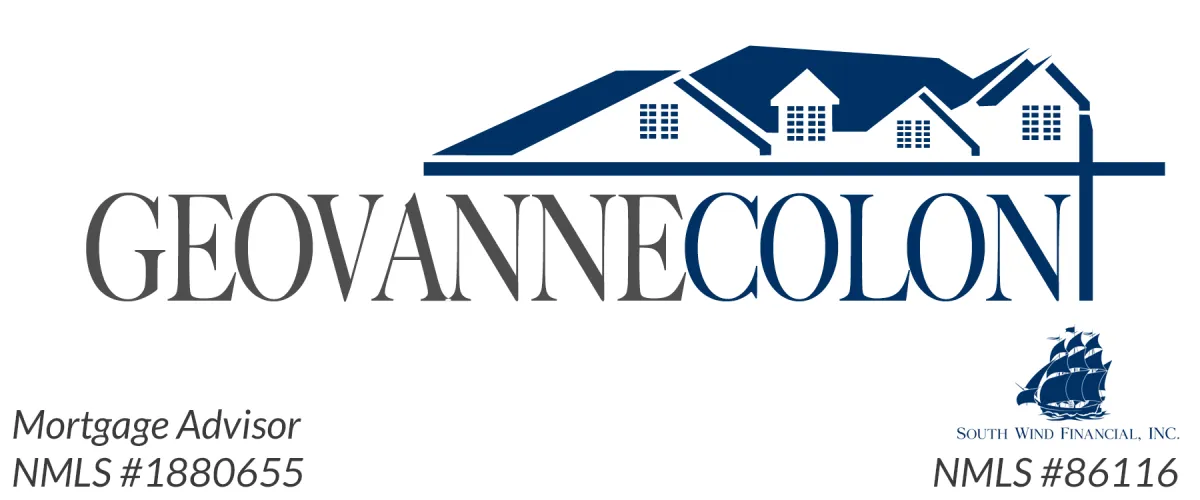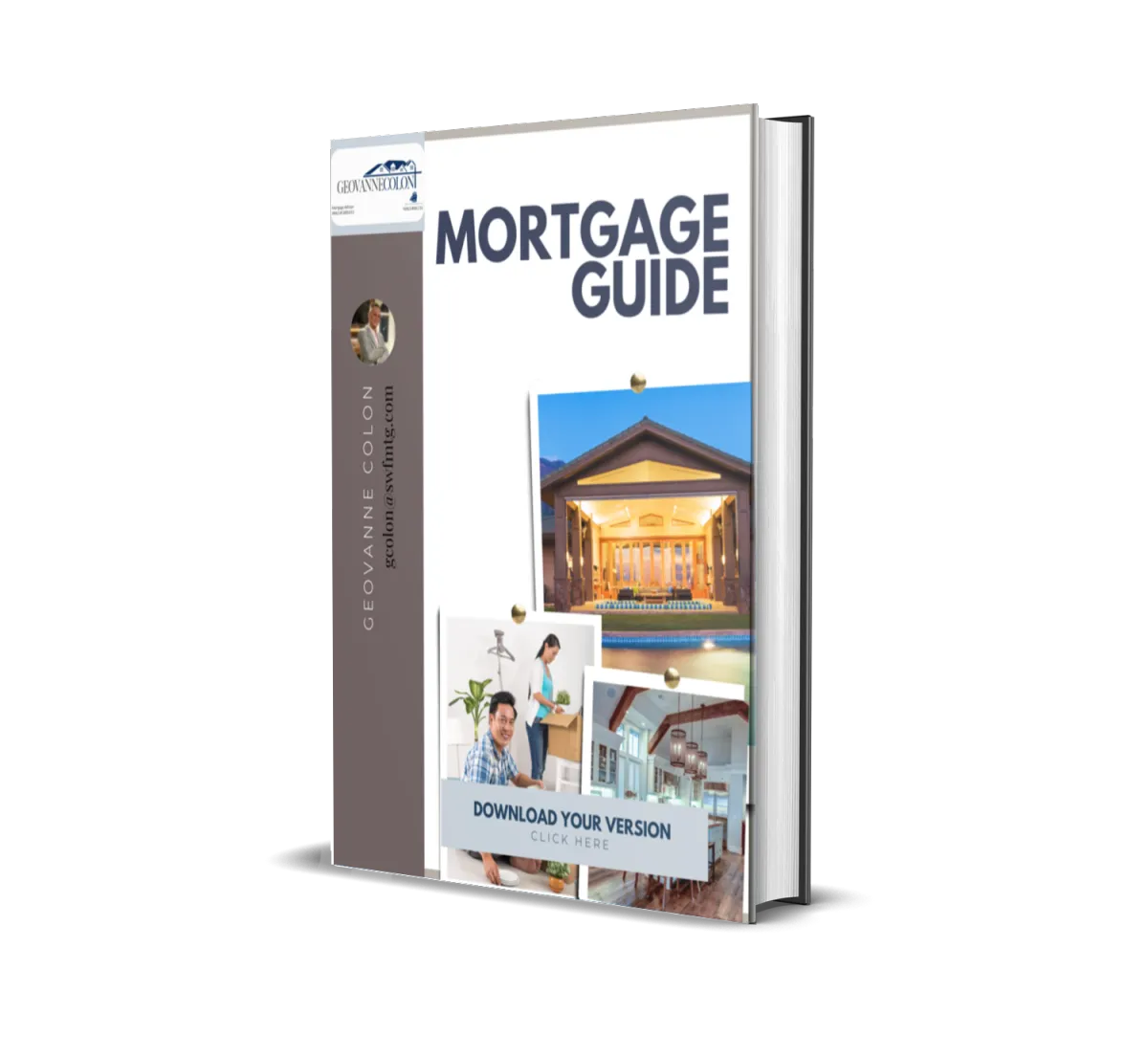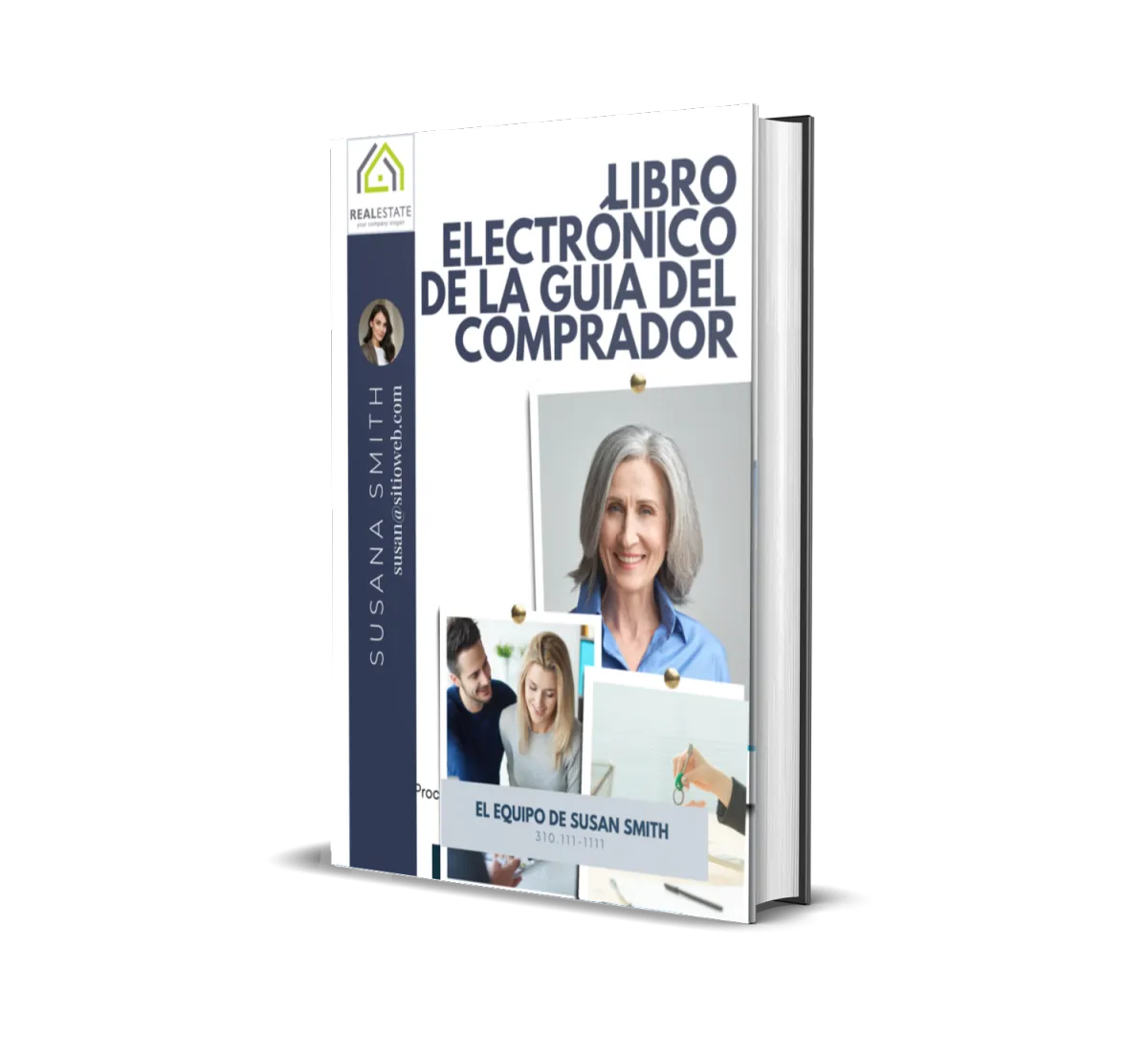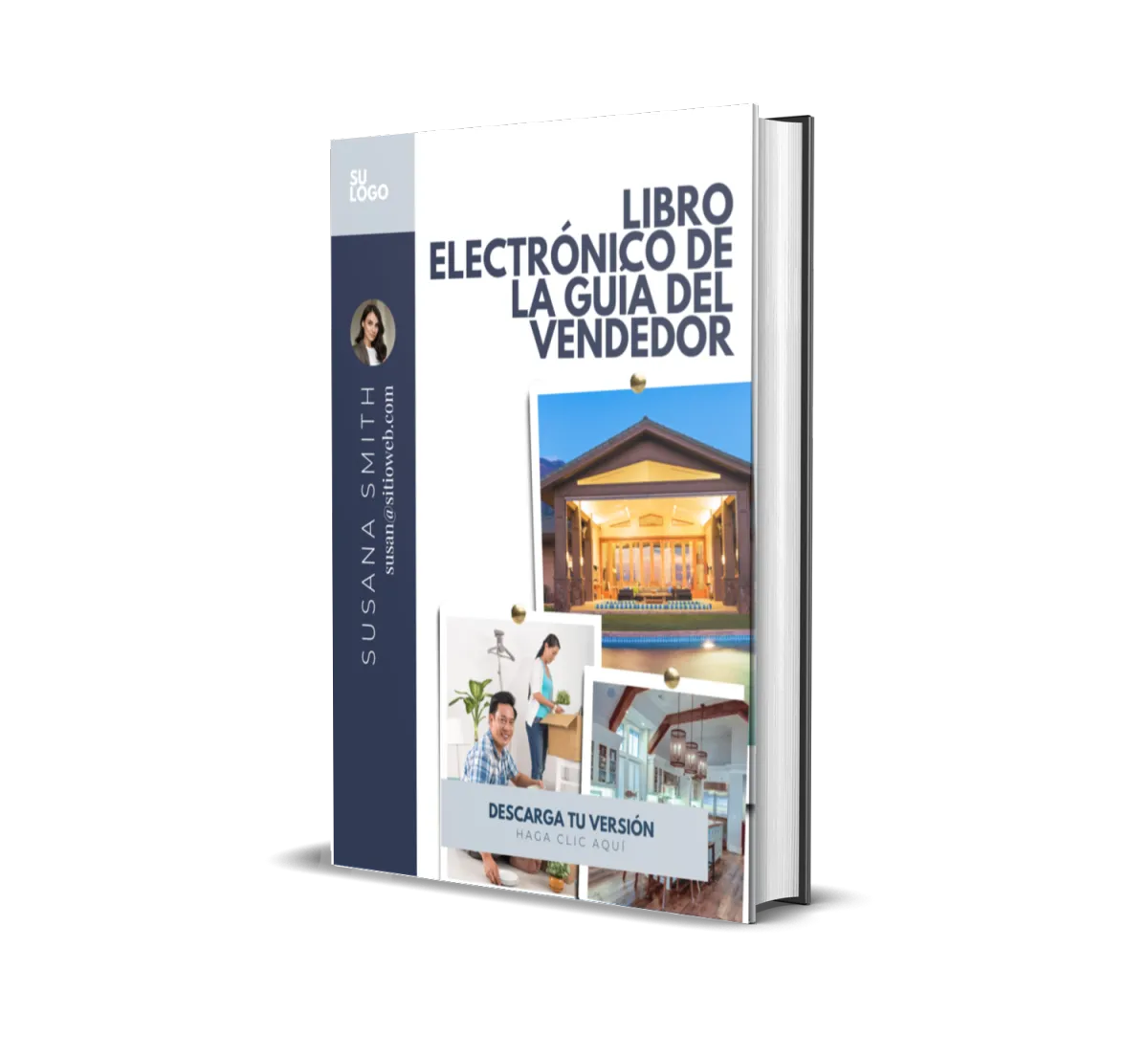617-821-1757

Looking For FHA Loans?
Apply today for the mortgage
that’s right for you.
Unlock Low Rates with Ease
Discover how Geovanne Colon simplifies the mortgage qualification process for you.
Apply today for the mortgage
that’s right for you.
Unlock Low Rates with Ease
Discover how Geovanne Colon simplifies the mortgage qualification process for you.
Low Rate.
Zero Hassles.
Get a free quote
Low Rate.
Zero Hassles.
Get a free quote
Feel Overwhelmed by Mortgage Choices? I Understand.

Feeling Lost in a Sea of Mortgage Options? Finding the right mortgage can be a daunting task. With an overwhelming array of rates, terms, and lenders, it's easy to feel lost and uncertain. Are you worried about high interest rates, hidden fees, or choosing a mortgage that doesn't fit your long-term goals?
Why Choose Us?
Ready to Start?
Your perfect home won't wait forever, and neither should you. Begin your journey today with a loan officer that puts you first. By choosing us, you're not just getting a loan – you're gaining a lifelong partner in all your mortgage endeavors.
Start your no-obligation consultation now and join the myriad of satisfied homeowners who have unlocked the doors to their future with ease and confidence. Dive into our world of simplified lending, and let's turn your homeownership dreams into reality.
Welcome Home!
Loan Programs We Help With
Seamless Solutions, Limitless Possibilities
Residential Mortgage Programs
1. FHA Loans
Federal Housing Administration (FHA) Loans
• Suitable for first-time homebuyers
• Low down payment options (as low as 3.5%)
• Requires mortgage insurance
• Lenient credit scores accepted
• 203K Renovation Loans Available
2. Conventional Loans
Conventional Mortgage Loans
• Preferred by borrowers with stronger credit
• Down payments as low as 3%
• Available in fixed or adjustable rates
• No government insurance premiums
• HomeStyle Renovation Loan Available
3. USDA Loans
US Department of Agriculture (USDA) Loans
• Ideal for eligible rural and suburban homebuyers
• Zero down payment
• Low insurance costs
• Income and geographic restrictions apply
4. VA Loans
Veterans Affairs (VA) Mortgage Loans
• Exclusively for veterans, active-duty service members, and eligible spouses
• No down payment required
• No mortgage insurance needed
• Competitive interest rates
A. ITIN - No Social Security Loans
• For borrowers with an Individual Tax Identification Number
• Lacks Social Security number
B. 1099 Loans
• Designed for independent contractors or self-employed individuals
• Based on the 1099 tax form income
C. VOE Only
• Verification of employment as the primary source of income validation
D. Asset Depletion
• Utilizes borrower's liquid assets for qualification purposes
E. Bank Statement Loans
• Income based on bank statements, suitable for self-employed borrowers
F. DSCR - Investor No Income Verification
• For real estate investors, using property cash flow as a qualification metric
Non-Qualified Mortgage (Non-QM) Loans
Loan Programs We Help With
Seamless Solutions, Limitless Possibilities
Residential Mortgage Programs
1. FHA Loans
Federal Housing Administration (FHA) Loans
• Suitable for first-time homebuyers
• Low down payment options (as low as 3.5%)
• Requires mortgage insurance
• Lenient credit scores accepted
2. Conventional Loans
Conventional Mortgage Loans
• Preferred by borrowers with stronger credit
• Down payments as low as 3%
• Available in fixed or adjustable rates
• No government insurance premiums
3. USDA Loans
US Department of Agriculture (USDA) Loans
• Ideal for eligible rural and suburban homebuyers
• Zero down payment
• Low insurance costs
• Income and geographic restrictions apply
4. VA Loans
Veterans Affairs (VA) Loans
• Exclusively for veterans, active-duty service members, and eligible spouses
• No down payment required
• No mortgage insurance needed
• Competitive interest rates
Non-Qualified Mortgage (Non-QM) Loans
A. ITIN - No Social Security Loans
• For borrowers with an Individual Tax Identification Number
• Lacks Social Security number
B. 1099 Loans
• Designed for independent contractors or self-employed individuals
• Based on the 1099 tax form income
C. VOE Only
• Verification of employment as the primary source of income validation
D. Asset Depletion
• Utilizes borrower's liquid assets for qualification purposes
E. Bank Statement Loans
• Income based on bank statements, suitable for self-employed borrowers
F. DSCR - Investor No Income Verification
• For real estate investors, using property cash flow as a qualification metric
More Loan Programs
Foreign National Loans
• Tailored for non-U.S. citizens looking to buy investment or vacation properties in the U.S.
• May require larger down payments and proof of foreign income.
Jumbo Loans
• Exceed the loan limits set by the FHFA for conventional mortgages.
• Requires non-traditional underwriting to accommodate the larger loan amount.
Real Estate Investor Loans
• Customized loans for experienced real estate investors.
• Can include options for multiple properties under a single loan (blanket loans).
Non-Warrantable Condo Loans
• For condos that do not meet specific requirements by Fannie Mae or Freddie Mac.
• Necessary for financing condos in buildings with more owner-occupied spaces or litigation issues.
Credit Event Loans
• Available to borrowers with significant derogatory credit events, such as bankruptcy or foreclosure.
• Typically requires a higher down payment or additional reserves.
Hard Money/Private Lending
•For immediate or short-term financing needs
• Higher-cost, short-term loans
• Asset-based lending criteria
• Terms typically around 12 months
Fix and Flips
• Loans crafted for renovating and flipping properties
Commercial Loans
•Tailored for businesses to purchase or refinance commercial property
• Offering solutions for office buildings, retail spaces, and industrial properties
• Custom terms to align with business strategies
New Construction
• Financing for ground-up construction projects
Small Business Administration (SBA) Loans
• Federally backed to help start or grow a business
• Lower down payments
• Longer repayment terms
• Focused on small businesses
Bridge Loans
• Short-term loans to bridge the gap during transitional periods
Down Payment Assistance Programs
• Provides prospective homebuyers with loans or grants that they can use toward the down payment for a house.
• Most down payment assistance programs are designed for first-time homebuyers and offered by various institutions, such as government, non-profits, or lenders.
More Loan Programs
Foreign National Loans
• Tailored for non-U.S. citizens looking to buy investment or vacation properties in the U.S.
• May require larger down payments and proof of foreign income.
Jumbo Loans
• Exceed the loan limits set by the FHFA for conventional mortgages.
• Requires non-traditional underwriting to accommodate the larger loan amount.
Real Estate Investor Loans
• Customized loans for experienced real estate investors.
• Can include options for multiple properties under a single loan (blanket loans).
Non-Warrantable Condo Loans
• For condos that do not meet specific requirements by Fannie Mae or Freddie Mac.
• Necessary for financing condos in buildings with more owner-occupied spaces or litigation issues.
Credit Event Loans
• Available to borrowers with significant derogatory credit events, such as bankruptcy or foreclosure.
• Typically requires a higher down payment or additional reserves.
Hard Money/Private Lending
•For immediate or short-term financing needs
• Higher-cost, short-term loans
• Asset-based lending criteria
• Terms typically around 12 months
Fix and Flips
• Loans crafted for renovating and flipping properties
Commercial Loans
•Tailored for businesses to purchase or refinance commercial property
• Offering solutions for office buildings, retail spaces, and industrial properties
• Custom terms to align with business strategies
New Construction
• Financing for ground-up construction projects
Small Business Administration (SBA) Loans
• Federally backed to help start or grow a business
• Lower down payments
• Longer repayment terms
• Focused on small businesses
Bridge Loans
• Short-term loans to bridge the gap during transitional periods
Down Payment Assistance Programs
• Provides prospective homebuyers with loans or grants that they can use toward the down payment for a house.
• Most down payment assistance programs are designed for first-time homebuyers and offered by various institutions, such as government, non-profits, or lenders.
Who We Help?
Seamless Solutions, Limitless Possibilities
First Time Home Buyers
We know how overwhelming the process of buying a home is, especially if it is the first time that you're doing it. We will work closely with you to explain the process, to protect you from making mistakes that could cost you later, and to ensure that your mortgage gets approved and you get the home that you are so excited to be buying!
Move Up and Second Home Buyers
Buying a new home when you currently own one has it's own unique set of concerns. We can answer all of your questions about how to qualify and purchase a home when you already own one whether you're buying a new primary residence or a second vacation home.
Refinancing Home Owners
If you already own your home but you are looking to refinance to either save money with a lower interest rate or possibly take some cash out for any reason, we can help you with that. We also can show you how to make sure you are structuring your new financing to get the best deal possible.
Investment Buyers
If you're buying real estate for investment purposes, we can help you secure low rate financing to maximize your ROI.
Seniors Seeking Reverse Mortgages
If you are 62 years or older and are looking for options to stay in your home without a mortgage payment or to access your home's equity while still living there, I can answer your questions about reverse mortgages so you can decide if they are right for you.
What My Clients Say
Ready to Find Your Perfect Mortgage?
Are You A First Time Home Buyer?
Download Our Free Home Buyer's Guide

Other Resources You'll Find Helpful

Buyer's Guide for Real Estate Agent
(English)

Buyer's Guide for Real Estate Agent
(Spanish)

Seller's Guide for Real Estate Agent
(English)

Seller's Guide for Real Estate Agent
(Spanish)
Calculate Your Mortgage Payment
Our Blogs

6 Tips to Save for a Down Payment & Save for a House: First-Time Mortgage
6 Tips to Save for a House: Save for Your Down Payment
Saving for a down payment is one of the most crucial steps in the home buying process, especially for first-time homebuyers. Whether you dream of purchasing a cozy cottage or a modern apartment, understanding the ins and outs of saving for a house can significantly affect your ability to secure a mortgage. In this article, we will explore six essential tips that can help you save for a down payment, making your journey to buy a home smoother and more manageable.
What is the Need for a Down Payment When You Buy a Home?
Understanding Down Payment Requirements
When you decide to buy a house, one of the first things you will encounter is the need for a down payment. A down payment is a percentage of the home's purchase price that you pay upfront. This payment is crucial because it reduces the amount you will need to borrow from a lender, ultimately influencing your monthly mortgage payment. Without a significant down payment, you may face higher interest rates or be required to pay private mortgage insurance (PMI), which adds to your monthly payment and overall cost of homeownership.
How Much Do You Need for a Down Payment?
Determining how much you need to save for a down payment can vary based on several factors, including the type of loan you choose. For conventional mortgages, a common rule of thumb is to aim for a 20% down payment. However, there are programs for first-time homebuyers, such as FHA loans, that allow for down payments as low as 3.5% and Conventional with 3% down. Understanding these options can help you set a realistic savings goal and timeline for your home purchase.
Types of Loans and Their Down Payment Needs
The type of loan you select plays a significant role in how much you will need to save. For instance, if you opt for an adjustable-rate mortgage (ARM), you might find down payment requirements differing from those for a conventional mortgage. It’s essential to research the various loan types and their associated down payment needs to determine what works best for your financial situation. Each loan type can impact your monthly mortgage payment and total long-term costs, so be sure to weigh your options carefully.
How Can You Determine How Much to Save for a Down Payment?
Calculating Your Savings Goal for a Down Payment
To determine how much you need to save for a down payment, start by calculating your savings goal based on the price of the home you wish to buy. For example, if you are looking to purchase a $300,000 home and aim for a 20% down payment, you will need to save $60,000. Conversely, if you qualify for an FHA loan with a 3.5% down payment, your goal would be $10,500. Understanding these calculations can help you make informed decisions about your savings strategy.
Factors to Consider When Setting a Down Payment Amount
Several factors can influence how much you should aim to save for your down payment. For instance, your financial situation, including your income, existing debts, and savings, will all play a role. Additionally, consider the overall home buying market and mortgage rates. If rates are low, you might opt for a larger down payment to save on interest costs over the life of the loan. When setting your down payment amount, be realistic about what you can save each month and how long you are willing to wait to purchase a home.
Using Mortgage Calculators to Estimate Your Needs
Mortgage calculators can be an invaluable tool for estimating how much you need to save for a down payment. These calculators allow you to input your desired home price, down payment percentage, and income to generate an estimated monthly mortgage payment. By experimenting with different down payment amounts, you can visualize how your savings will impact your overall home purchase and monthly payments, helping you make educated decisions about your financial future.
What Are Effective Tips for Saving for a Down Payment?
Creating a Separate Savings Account for Your Down Payment
One of the most effective tips for saving for a down payment is to create a separate savings account exclusively for this purpose. By designating a high-yield savings account or money market account for your down payment, you can track your progress and avoid dipping into your savings for other expenses. This dedicated account can help you stay focused on your goal and may even earn you more interest over time, accelerating your savings plan.
Utilizing High-Interest Savings Accounts or CDs
To maximize your savings, consider utilizing high-interest savings accounts or certificates of deposit (CDs). These financial products typically offer higher interest rates than standard savings accounts, helping your money grow faster. By putting your savings into a CD with a fixed interest rate, you can ensure a stable return on your investment, making it easier to reach your down payment goal. Just be mindful of the terms and penalties for early withdrawal, as you may need access to your funds when it’s time to purchase a home.
Automating Your Savings: Best Practices
Automating your savings can be one of the best practices for ensuring you consistently contribute to your down payment fund. Set up automatic transfers from your checking account to your designated savings account each month. This way, you can save without even thinking about it, ensuring that you prioritize your goal of buying a house. You can even increase the amount you save as your income grows, allowing you to save even more efficiently over time.
How Does Your Credit Score Impact Your Ability to Save for a House?
Understanding the Role of Credit Score in Home Buying
Your credit score plays a pivotal role in your ability to purchase a home, as it directly affects the mortgage options available to you. Lenders use your credit score to assess your creditworthiness and determine the interest rates you will qualify for. A higher credit score can lead to lower interest rates, which in turn can significantly reduce your monthly mortgage payments. Understanding the importance of maintaining a good credit score can help you save thousands of dollars over the life of your mortgage.
Improving Your Credit Score Before Applying for a Mortgage
Before you start the home buying process, it’s wise to check your credit score and take steps to improve it if necessary. This might include paying down existing debts, making timely payments on bills, and avoiding new credit inquiries. By improving your credit score, you can enhance your chances of qualifying for better loan terms, allowing you to save even more on your down payment and monthly payments.
How a Good Credit Score Can Reduce Your Down Payment
In many cases, a good credit score can reduce the required down payment. Lenders may offer programs that allow qualified buyers to put down less if they demonstrate strong creditworthiness. For instance, some conventional loans may permit lower down payments for buyers with excellent credit, meaning you could potentially purchase a home with less savings than you initially anticipated. This flexibility can be a significant advantage for first-time homebuyers looking to save for a house.
What Are the Closing Costs and Other Expenses to Account for When Saving for a House?
Breaking Down Closing Costs for First-Time Homebuyers
In addition to saving for a down payment, it’s essential to consider closing costs when planning your home purchase. Closing costs can include various fees related to the purchase of a home, such as appraisal fees, title insurance, and attorney fees. These costs can range from 2% to 5% of the home’s purchase price, so it’s crucial to factor them into your overall savings plan. First-time homebuyers should aim to save enough to cover these expenses to avoid any surprises during the closing process.
Including Mortgage Insurance in Your Savings Plan
If your down payment is less than 20%, you will likely be required to pay mortgage insurance, which can be a significant expense. This insurance protects the lender in case you default on your loan. Be sure to include this cost in your savings plan, as it can affect your monthly mortgage payment. Understanding these additional costs will help you prepare financially for your home purchase and ensure you save enough for your down payment and other expenses.
Preparing for Other Costs Beyond the Down Payment
Beyond the down payment and closing costs, there are several other expenses to account for when saving for a house. These may include moving costs, home maintenance, and property taxes. First-time homebuyers should prepare for these additional expenditures to ensure they can comfortably afford their new monthly mortgage payments without compromising their financial stability. By planning for these costs, you can save effectively and ensure a smooth transition into homeownership.
When it comes to becoming a home buyer, especially for first-time home buyers, understanding the median down payment is crucial. Many experts recommend aiming to put down 20 percent to avoid private mortgage insurance (PMI), but if that’s not feasible, there are various loan programs available that can accommodate lower mortgage down payment options. To achieve your goal, it’s essential to create a budget and calculate how much you can realistically save each month. Consider setting aside funds exclusively for your down payment through avenues like a money market fund or utilizing online banking for better savings management.
Additionally, it’s wise to explore ways to save that can help you save hundreds of dollars over time. Assess your monthly income and identify areas where you can cut back to increase your savings. Remember, the payment on a house will significantly affect your monthly budget, particularly the mortgage interest rate you qualify for, which can be influenced by your credit scores as low as they may be. Ultimately, understanding these factors will empower you to make informed decisions about your mortgage loan and navigate the path to homeownership with confidence. Contact us today if you are ready to begin your mortgage journey at [email protected] or 617-821-1757.

6 Tips to Save for a Down Payment & Save for a House: First-Time Mortgage
6 Tips to Save for a House: Save for Your Down Payment
Saving for a down payment is one of the most crucial steps in the home buying process, especially for first-time homebuyers. Whether you dream of purchasing a cozy cottage or a modern apartment, understanding the ins and outs of saving for a house can significantly affect your ability to secure a mortgage. In this article, we will explore six essential tips that can help you save for a down payment, making your journey to buy a home smoother and more manageable.
What is the Need for a Down Payment When You Buy a Home?
Understanding Down Payment Requirements
When you decide to buy a house, one of the first things you will encounter is the need for a down payment. A down payment is a percentage of the home's purchase price that you pay upfront. This payment is crucial because it reduces the amount you will need to borrow from a lender, ultimately influencing your monthly mortgage payment. Without a significant down payment, you may face higher interest rates or be required to pay private mortgage insurance (PMI), which adds to your monthly payment and overall cost of homeownership.
How Much Do You Need for a Down Payment?
Determining how much you need to save for a down payment can vary based on several factors, including the type of loan you choose. For conventional mortgages, a common rule of thumb is to aim for a 20% down payment. However, there are programs for first-time homebuyers, such as FHA loans, that allow for down payments as low as 3.5% and Conventional with 3% down. Understanding these options can help you set a realistic savings goal and timeline for your home purchase.
Types of Loans and Their Down Payment Needs
The type of loan you select plays a significant role in how much you will need to save. For instance, if you opt for an adjustable-rate mortgage (ARM), you might find down payment requirements differing from those for a conventional mortgage. It’s essential to research the various loan types and their associated down payment needs to determine what works best for your financial situation. Each loan type can impact your monthly mortgage payment and total long-term costs, so be sure to weigh your options carefully.
How Can You Determine How Much to Save for a Down Payment?
Calculating Your Savings Goal for a Down Payment
To determine how much you need to save for a down payment, start by calculating your savings goal based on the price of the home you wish to buy. For example, if you are looking to purchase a $300,000 home and aim for a 20% down payment, you will need to save $60,000. Conversely, if you qualify for an FHA loan with a 3.5% down payment, your goal would be $10,500. Understanding these calculations can help you make informed decisions about your savings strategy.
Factors to Consider When Setting a Down Payment Amount
Several factors can influence how much you should aim to save for your down payment. For instance, your financial situation, including your income, existing debts, and savings, will all play a role. Additionally, consider the overall home buying market and mortgage rates. If rates are low, you might opt for a larger down payment to save on interest costs over the life of the loan. When setting your down payment amount, be realistic about what you can save each month and how long you are willing to wait to purchase a home.
Using Mortgage Calculators to Estimate Your Needs
Mortgage calculators can be an invaluable tool for estimating how much you need to save for a down payment. These calculators allow you to input your desired home price, down payment percentage, and income to generate an estimated monthly mortgage payment. By experimenting with different down payment amounts, you can visualize how your savings will impact your overall home purchase and monthly payments, helping you make educated decisions about your financial future.
What Are Effective Tips for Saving for a Down Payment?
Creating a Separate Savings Account for Your Down Payment
One of the most effective tips for saving for a down payment is to create a separate savings account exclusively for this purpose. By designating a high-yield savings account or money market account for your down payment, you can track your progress and avoid dipping into your savings for other expenses. This dedicated account can help you stay focused on your goal and may even earn you more interest over time, accelerating your savings plan.
Utilizing High-Interest Savings Accounts or CDs
To maximize your savings, consider utilizing high-interest savings accounts or certificates of deposit (CDs). These financial products typically offer higher interest rates than standard savings accounts, helping your money grow faster. By putting your savings into a CD with a fixed interest rate, you can ensure a stable return on your investment, making it easier to reach your down payment goal. Just be mindful of the terms and penalties for early withdrawal, as you may need access to your funds when it’s time to purchase a home.
Automating Your Savings: Best Practices
Automating your savings can be one of the best practices for ensuring you consistently contribute to your down payment fund. Set up automatic transfers from your checking account to your designated savings account each month. This way, you can save without even thinking about it, ensuring that you prioritize your goal of buying a house. You can even increase the amount you save as your income grows, allowing you to save even more efficiently over time.
How Does Your Credit Score Impact Your Ability to Save for a House?
Understanding the Role of Credit Score in Home Buying
Your credit score plays a pivotal role in your ability to purchase a home, as it directly affects the mortgage options available to you. Lenders use your credit score to assess your creditworthiness and determine the interest rates you will qualify for. A higher credit score can lead to lower interest rates, which in turn can significantly reduce your monthly mortgage payments. Understanding the importance of maintaining a good credit score can help you save thousands of dollars over the life of your mortgage.
Improving Your Credit Score Before Applying for a Mortgage
Before you start the home buying process, it’s wise to check your credit score and take steps to improve it if necessary. This might include paying down existing debts, making timely payments on bills, and avoiding new credit inquiries. By improving your credit score, you can enhance your chances of qualifying for better loan terms, allowing you to save even more on your down payment and monthly payments.
How a Good Credit Score Can Reduce Your Down Payment
In many cases, a good credit score can reduce the required down payment. Lenders may offer programs that allow qualified buyers to put down less if they demonstrate strong creditworthiness. For instance, some conventional loans may permit lower down payments for buyers with excellent credit, meaning you could potentially purchase a home with less savings than you initially anticipated. This flexibility can be a significant advantage for first-time homebuyers looking to save for a house.
What Are the Closing Costs and Other Expenses to Account for When Saving for a House?
Breaking Down Closing Costs for First-Time Homebuyers
In addition to saving for a down payment, it’s essential to consider closing costs when planning your home purchase. Closing costs can include various fees related to the purchase of a home, such as appraisal fees, title insurance, and attorney fees. These costs can range from 2% to 5% of the home’s purchase price, so it’s crucial to factor them into your overall savings plan. First-time homebuyers should aim to save enough to cover these expenses to avoid any surprises during the closing process.
Including Mortgage Insurance in Your Savings Plan
If your down payment is less than 20%, you will likely be required to pay mortgage insurance, which can be a significant expense. This insurance protects the lender in case you default on your loan. Be sure to include this cost in your savings plan, as it can affect your monthly mortgage payment. Understanding these additional costs will help you prepare financially for your home purchase and ensure you save enough for your down payment and other expenses.
Preparing for Other Costs Beyond the Down Payment
Beyond the down payment and closing costs, there are several other expenses to account for when saving for a house. These may include moving costs, home maintenance, and property taxes. First-time homebuyers should prepare for these additional expenditures to ensure they can comfortably afford their new monthly mortgage payments without compromising their financial stability. By planning for these costs, you can save effectively and ensure a smooth transition into homeownership.
When it comes to becoming a home buyer, especially for first-time home buyers, understanding the median down payment is crucial. Many experts recommend aiming to put down 20 percent to avoid private mortgage insurance (PMI), but if that’s not feasible, there are various loan programs available that can accommodate lower mortgage down payment options. To achieve your goal, it’s essential to create a budget and calculate how much you can realistically save each month. Consider setting aside funds exclusively for your down payment through avenues like a money market fund or utilizing online banking for better savings management.
Additionally, it’s wise to explore ways to save that can help you save hundreds of dollars over time. Assess your monthly income and identify areas where you can cut back to increase your savings. Remember, the payment on a house will significantly affect your monthly budget, particularly the mortgage interest rate you qualify for, which can be influenced by your credit scores as low as they may be. Ultimately, understanding these factors will empower you to make informed decisions about your mortgage loan and navigate the path to homeownership with confidence. Contact us today if you are ready to begin your mortgage journey at [email protected] or 617-821-1757.

